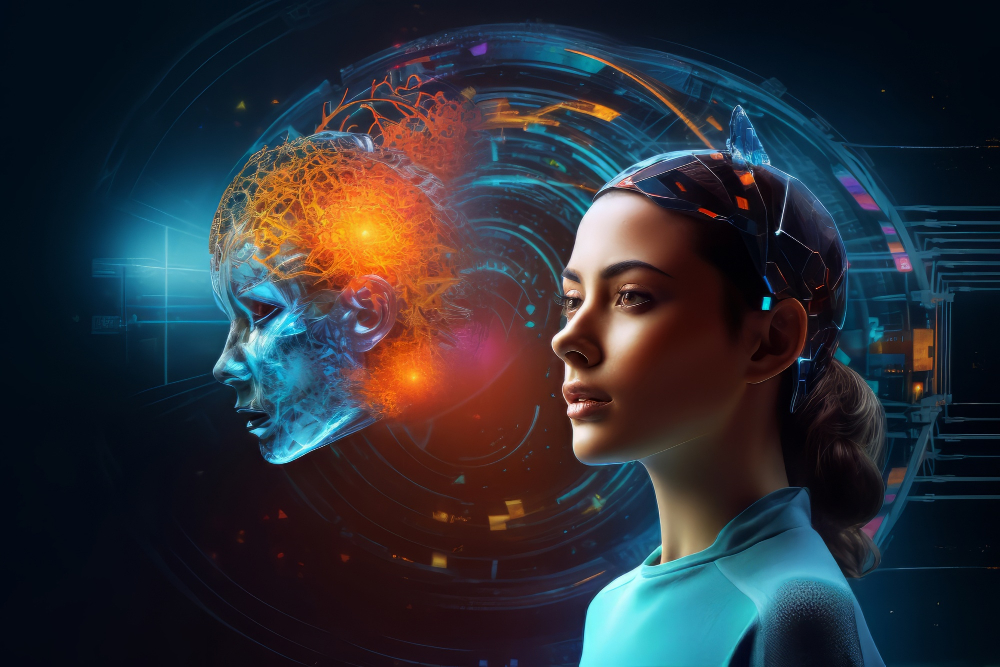- Blog
- November 24, 2025
Leveraging Generative AI to accelerate Innovation

- Blog
- November 24, 2025
Leveraging Generative AI to accelerate Innovation
Innovation has always been the engine behind business growth. What has changed is the speed at which innovation needs to happen. Markets shift quickly, customer expectations evolve constantly, and competition grows fiercer each year. In this environment, traditional approaches to research, design, and product development often feel slow and rigid.
This is where advanced AI capabilities are redefining the rules. Instead of simply automating tasks, these intelligent systems help organizations create. It can generate ideas, designs, code, content, simulations, and even strategies in a fraction of the time it once took. Companies that embrace this capability are no longer limited by manual brainstorming or lengthy development cycles. They are building, testing, and improving ideas faster than ever before.
Generative AI is not just a new technology trend. It is becoming a core driver of how modern innovation happens.
Understanding Generative AI in simple terms
Generative AI refers to artificial intelligence systems that can create new content or solutions based on patterns learned from data. Unlike traditional AI, which focuses mainly on recognizing patterns and making predictions, modern AI models produce original outputs such as text, images, software code, product designs, videos, and even synthetic data.
For business leaders, the most important thing to understand is “These AI-driven systems do not just analyze existing information. They help create new possibilities”. Whether it is a marketing team generating personalized campaigns or an engineering team prototyping new product designs, creative AI tools act as a powerful creative partner.
Its accessibility also matters. You no longer need deep technical expertise to benefit from these platforms. Many tools are now designed for business users, product managers, designers, and analysts, making innovation more inclusive across the organization.
How Generative AI accelerates business innovation
Innovation traditionally involves long cycles of idea generation, feasibility testing, prototyping, and refinement. AI-powered creation tools compress these stages dramatically.
Teams can explore multiple product concepts in hours instead of weeks. Designers can generate and test different visual prototypes without waiting for manual mockups. Developers can use intelligent coding assistants to generate code snippets, test logic, and even identify bugs before they escalate.
One of the biggest advantages is speed of experimentation. Organizations can test ideas with far less risk because the cost of trial and error becomes much lower. Instead of investing heavily upfront, teams can validate ideas quickly and confidently.
It also enables innovation at scale. Smaller teams can now achieve what previously required large, specialized departments. This levels the playing field and allows faster-moving organizations to compete with established industry players.
Use cases of GenAI across industries
- Manufacturing and Engineering
- Healthcare and Life sciences
- Banking and Financial services
- Marketing and Customer experience
- Software and Product development
AI-driven design systems help engineering teams design new product models faster by generating multiple design variations and performance simulations. This reduces prototyping time and improves product quality while lowering development costs.
In healthcare, intelligent research platform accelerate medical research, improves patient education, and streamlines clinical documentation. It also helps researchers simulate drug interactions and treatment responses more efficiently.
Financial institutions use automated insights engine to handle complex reports, analyze market risks, and generate real-time financial insights. This improves decision-making accuracy and helps organizations stay compliant with regulations.
Marketing teams rely on AI-powered content engines to create personalized campaigns, social media content, and product messaging. Businesses can also tailor customer journeys in real time to improve engagement and brand loyalty.
Software teams uses smart development assistants write and optimize code, detect bugs, and generate documentation. This significantly reduces development cycles and improves product reliability.
The Role of IT teams in scaling GenAI
While business users drive many use cases, IT teams play a critical role in making AI-driven innovation successful at scale. Without the right infrastructure and governance, AI initiatives can quickly become fragmented or risky.
IT teams must ensure clean, reliable data pipelines. Intelligent systems are only as good as the data they learn from. Data quality, security, and compliance become non-negotiable.
Cloud platforms are essential for scalability. Most AI-intensive workloads require significant processing power. IT teams must design architectures that support real-time rendering, storage, and processing without performance bottlenecks.
Governance is equally important. Organizations need clear rules around data privacy, intellectual property, and responsible usage. IT and security teams must set guardrails that allow innovation without exposing the organization to unnecessary risks.
When IT and business teams collaborate closely, AI-led innovation becomes a strategic capability rather than a disconnected experiment.
Challenges and considerations when adopting Generative AI
Organizations should be aware of the following key challenges when implementing advanced AI technologies:
- Data quality and bias risks: Poor or unbalanced training data can lead to inaccurate or unfair outputs, making strong data governance essential.
- Security and privacy concerns: Sensitive business and customer data must be protected through encryption, access controls, and continuous monitoring.
- Intellectual property risks: AI generated content can raise ownership and compliance questions if not properly governed.
- Cultural resistance and adoption barriers: Employees may fear job displacement or mistrust AI outputs without proper training and communication.
- Lack of clear governance frameworks: Without defined rules for ethical and responsible use, AI can be misused or poorly controlled.
How organizations can build a Generative AI innovation roadmap
- Define high-impact starting points: Start by selecting use cases that deliver fast business value with low operational risk.
- Pilot before you scale: Test ideas through small, controlled projects to validate outcomes and build internal confidence.
- Align business and Technology teams: Bring business, IT, data, and compliance teams together early to avoid disconnected innovation efforts.
- Build skills for an AI-driven workforce: Train teams to use AI tools responsibly and effectively as part of their daily workflows.
- Establish strong governance and ethics: Create clear rules for data usage, transparency, and responsible AI practices.
- Track performance and innovation impact: Measure success using KPIs such as productivity gains, time savings, and quality improvements.
The road ahead for GenAI-driven innovation
AI-driven innovation is no longer an experimental capability. It is becoming a foundational technology that shapes how organizations create, compete, and grow. What makes this shift powerful is not just speed, but consistency. Businesses can now treat innovation as a continuous process rather than a one-time initiative.
The future will see AI copilots, intelligent agents, and autonomous systems embedded directly into business workflows. These intelligent platforms will help teams test ideas faster, reduce operational friction, and unlock new opportunities without replacing human creativity. The organizations that succeed will be the ones that combine strong governance, skilled teams, and scalable infrastructure with a clear vision for responsible AI use. With the right approach, businesses can move beyond experimentation and turn AI-powered innovation into a sustainable engine for long-term growth.
MSR Technology Group helps organizations navigate this transition by delivering secure, scalable, and responsible Generative AI solutions. By aligning business goals with intelligent technology, MTG supports enterprises in accelerating innovation while maintaining trust, security, and operational excellence.




